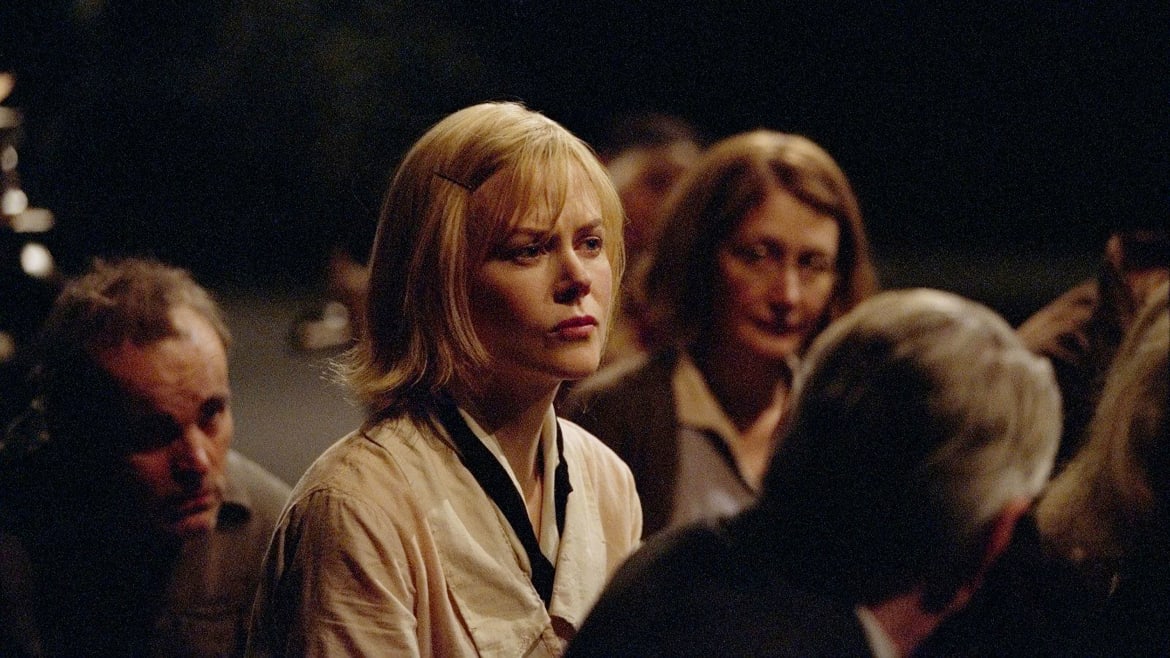Lions Gate Films
Like a hulking doorstop of a classic novel, Lars von Trier’s 2003 film Dogville is an endurance test, a summit to be climbed with great effort. And celebrating the 20th anniversary (along with a 4K restoration now playing on streaming service Mubi), the film is now enjoying its earned reputation as a difficult, but rewarding classic. At the time of its Cannes Film Festival debut, the film was interpreted as a direct comment on America’s war on terror. But now as it finds a new or revisiting audience, Dogville might have more to say today about the soul of America than it did 20 years ago.
Partly inspired by Bertolt Brecht’s “Pirate Jenny” and the work of John Steinbeck, the film is set during the Great Depression in a tiny fictional hamlet in the Rocky Mountains, with narrator John Hurt purring out a hammer of omnipotent judgment. Much like Thornton Wilder’s Our Town, the proceedings are presented on a near-bare, setless soundstage, with chalk lines drawn to distinguish between buildings, pathways, and the surrounding mountains. Encased by towering soundstage curtains, nothing beyond the town is visible, while everything inside it is in full view at all times.
Nicole Kidman’s Grace descends upon the town to the sound of gunfire in the distance, escaping what we will learn is her crime boss father (James Caan). With the bestowed kindness of spiritual mayor Tom (Paul Bettany), Grace seeks sanctuary, but must first win over the townsfolk’s favor. Pervasive throughout the makeshift neighborhood is a paranoia over forfeiting one’s limited means, especially to an outsider. This American Everytown is named purposefully: its most emblematic citizen is its sole canine Moses, barking aggressively at the sign of a stranger and turning vicious when asked to share what’s his.

